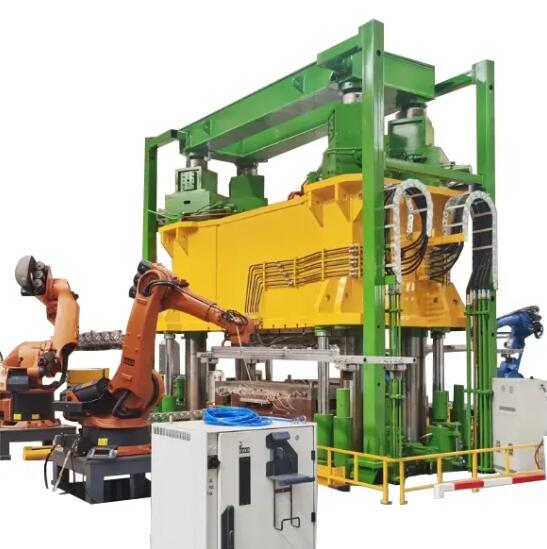Unmatched Precision: Advantages of Hydraulic Presses for SMC Forming
2024-02-27
Introduction:
In the realm of manufacturing, Sheet Molding Compound (SMC) has revolutionized the production of complex and high-quality components. Central to the success of SMC forming are hydraulic presses, which offer a range of advantages over other forming methods. In this blog, we'll explore the unique benefits of using hydraulic presses for SMC forming and how they contribute to efficiency, precision, and quality in manufacturing processes.
1. Consistent Pressure Application:
One of the primary advantages of hydraulic presses for SMC forming is their ability to apply consistent pressure across the entire surface of the workpiece. Unlike mechanical presses or manual methods, which may result in uneven pressure distribution and inconsistent forming, hydraulic presses exert uniform force, ensuring uniformity in the formed parts. This consistency leads to higher quality finished products with fewer defects.
2. Customizable Pressure Control:
Hydraulic presses offer unparalleled flexibility in pressure control, allowing operators to adjust pressure levels to suit the specific requirements of the SMC material and forming process. Advanced control systems enable precise adjustment of pressure parameters, ensuring optimal forming conditions for different part geometries, thicknesses, and material properties. This customization capability enhances process control and yields superior results.
3. Versatility in Tooling Options:
Hydraulic presses accommodate a wide range of tooling options, including molds, dies, punches, and other forming tools, making them highly versatile for various SMC forming applications. Manufacturers can easily swap out tooling setups to produce different part designs and configurations without the need for extensive retooling or equipment modifications. This versatility enables rapid prototyping, small batch production, and customization of formed parts.
4. Reduced Cycle Times:
Hydraulic presses are renowned for their fast cycle times, enabling high-speed production of formed SMC parts with minimal downtime. The rapid actuation of hydraulic cylinders and precise control of pressure parameters facilitate quick and efficient forming processes, resulting in shorter production cycles and increased throughput. This efficiency translates to cost savings and improved productivity for manufacturers.
5. Enhanced Safety Features:
Hydraulic presses are equipped with advanced safety features and fail-safe mechanisms to protect operators and prevent accidents during operation. Safety interlocks, emergency stop buttons, and pressure relief valves are among the safety features implemented in hydraulic press systems to ensure compliance with industry standards and regulations. These safety measures contribute to a secure working environment and minimize the risk of injuries.
6. Energy Efficiency:
Compared to other forming methods such as mechanical presses or pneumatic systems, hydraulic presses are known for their energy efficiency. Hydraulic systems operate at lower speeds and consume less energy, resulting in reduced power consumption and operating costs. Additionally, regenerative systems and energy-saving features further optimize energy usage, making hydraulic presses a sustainable choice for SMC forming operations.
Conclusion:
Hydraulic presses offer a multitude of advantages for SMC forming, including consistent pressure application, customizable pressure control, versatility in tooling options, reduced cycle times, enhanced safety features, and energy efficiency. These benefits enable manufacturers to achieve superior quality, efficiency, and productivity in their SMC forming processes, driving innovation and excellence in manufacturing. As the demand for complex and high-performance components continues to grow, hydraulic presses remain the preferred choice for SMC forming applications.



